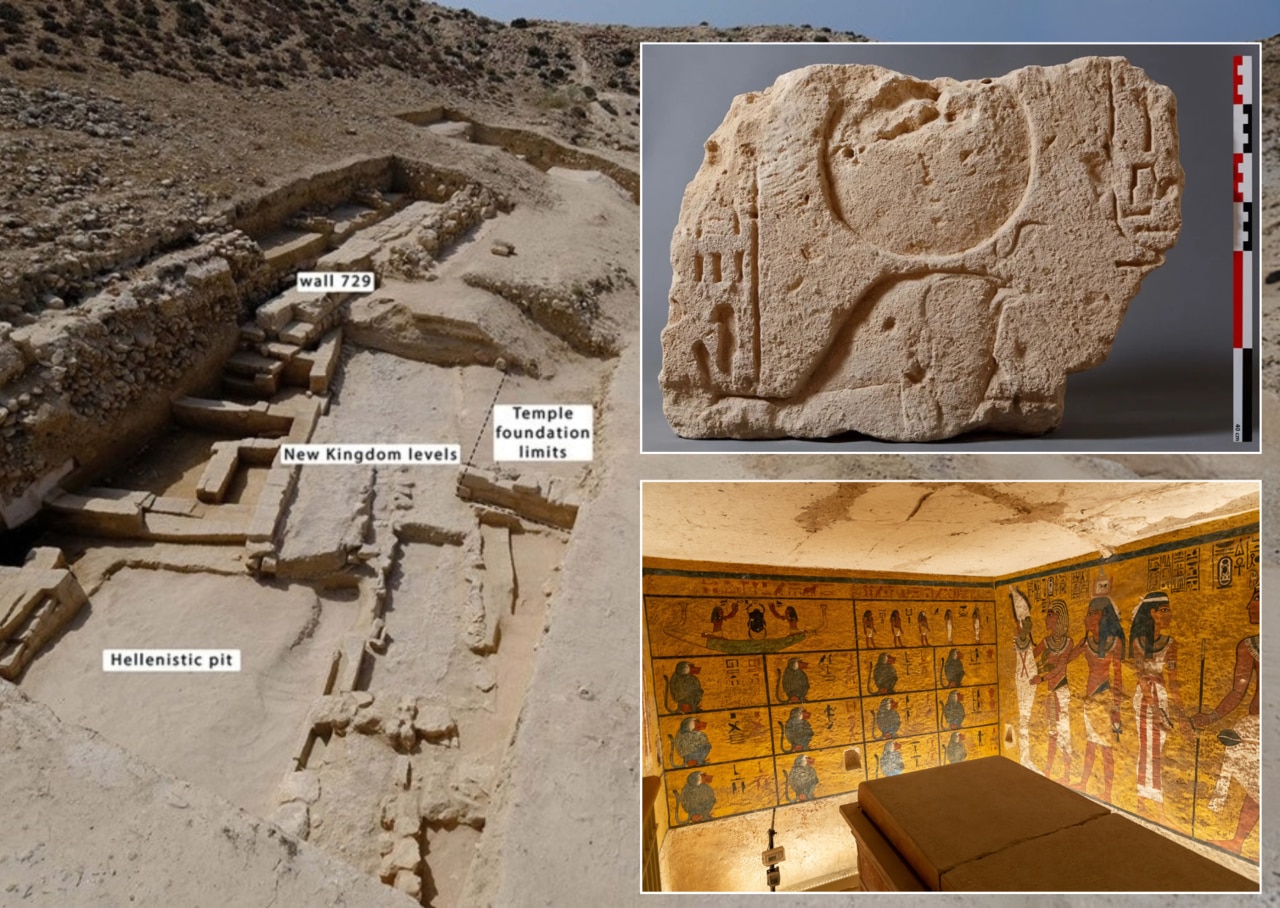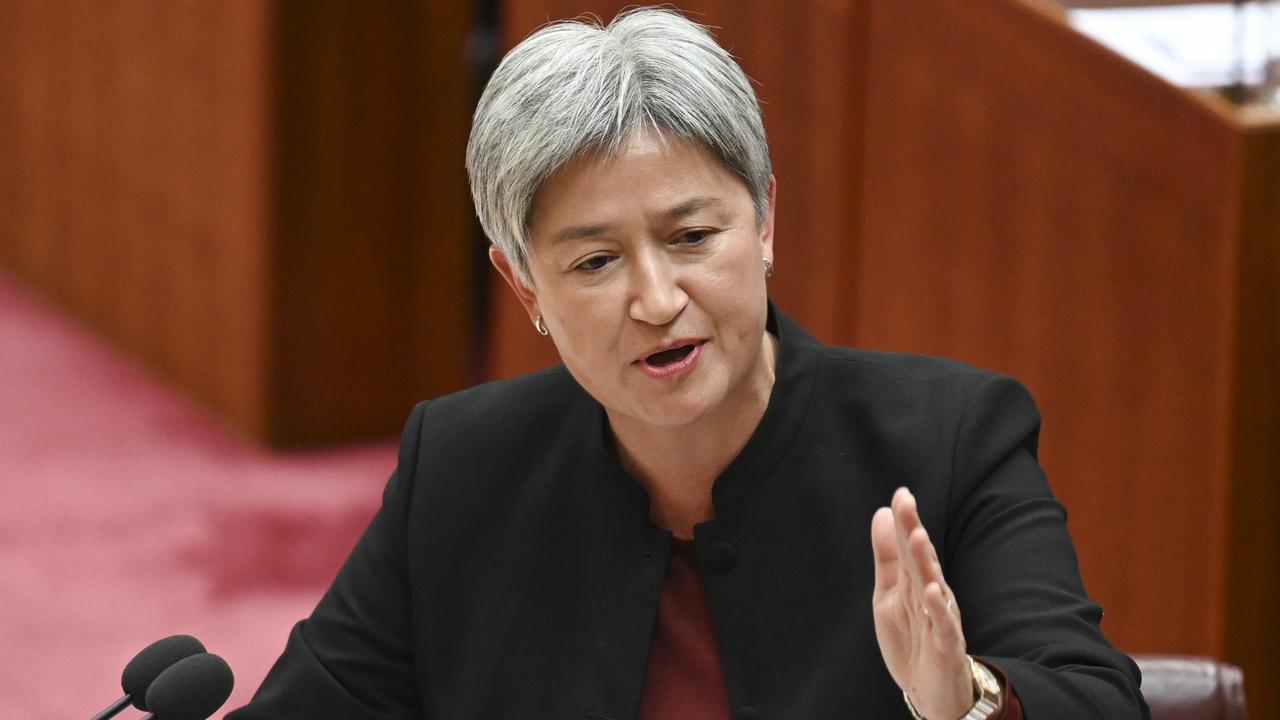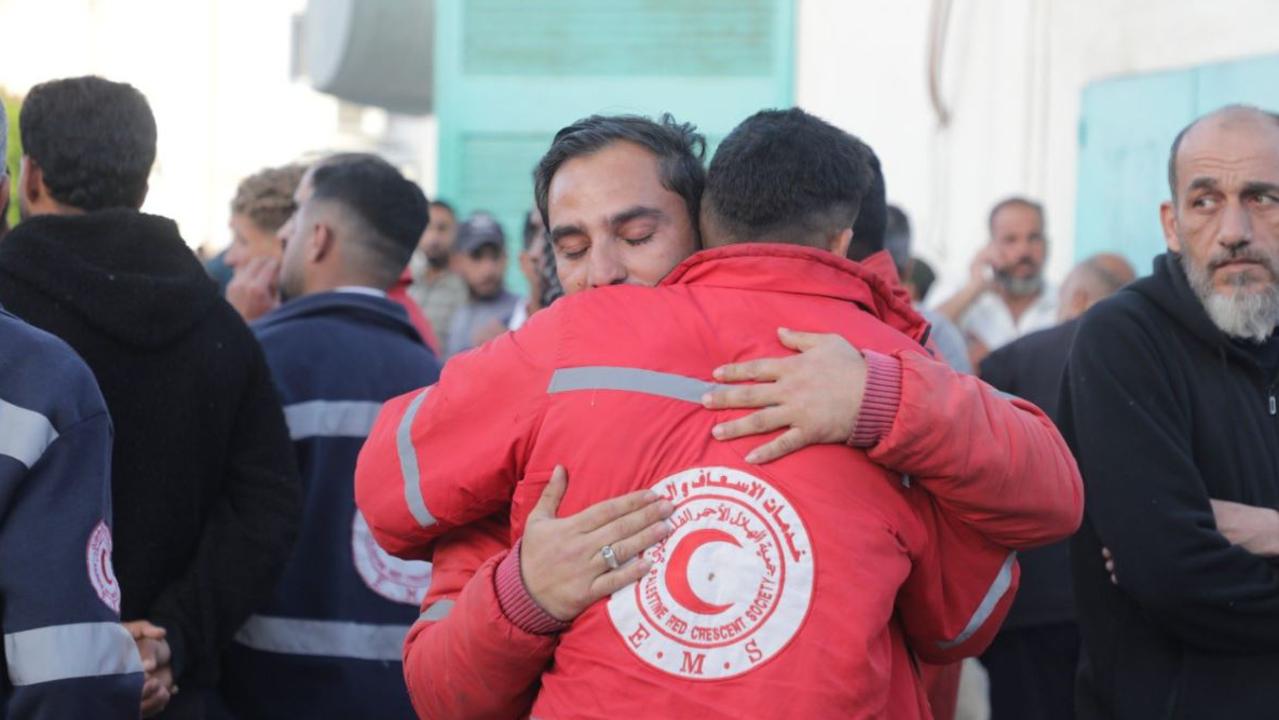Fears Hezbollah planning a major assault ‘within hours’ as Middle East implodes
Israel has “smothered” an attempted Hezbollah rocket counter-attack but expects a major strike “within a short time frame”.
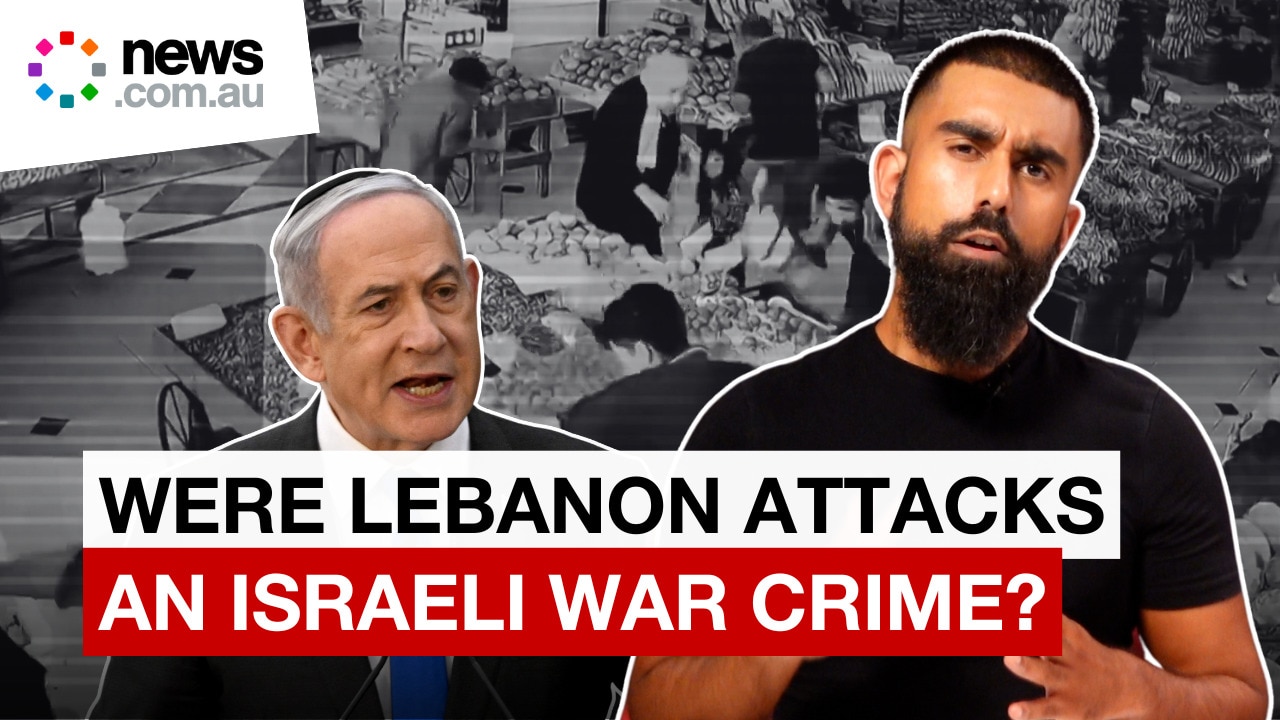
Israel says it expects a major attack “within a short time frame” as Hezbollah’s leader struggles to come to grips with the disastrous blow inflicted on his terrorist organisation over the past week.
Residents of the Israeli city of Haifa and in Galilee and the Jordan Valley have been issued instructions to brace for a large-scale assault by the Lebanon-based group “within the coming hours”.
“It is possible that in the immediate time frame, rockets and other threats may be launched at Israel. We ask of you to follow the Home Front Command guidelines,” IDF Spokesman Rear Admiral Daniel Hagari told media this morning.
Gatherings have been restricted to 30 people outdoors and 300 indoors, and all activity must be undertaken close to protected shelters.
The move comes after the Israeli Defence Force (IDF) said it attacked more than 400 rocket launchers yesterday as Hezbollah lobbed about 100 of the unguided weapons into Israel.
Defence officials say they had identified preparations by the group to launch a concentrated rocket attack.
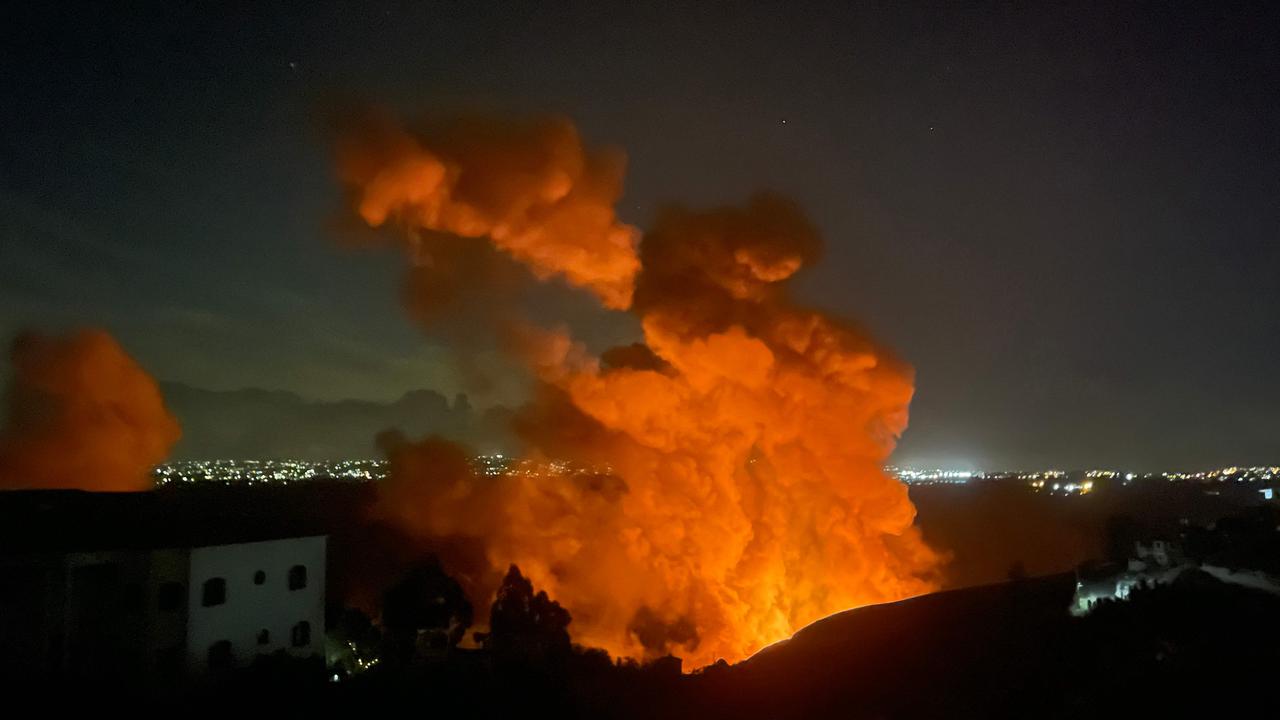
IDF officials claim it has “smothered” an attempted Hezbollah rocket counter-attack with “thousands” of rockets destroyed over the past 24 hours by the air and missile strikes, and say that attacks would continue to “dismantle and degrade” Hezbollah’s arsenal.
No injuries were reported from the 100 rockets that made it into Israeli airspace.
Unending escalation
As the air attacks unfolded overnight, IDF Northern Command chief Major General Ori Gordin told senior officers deployed to the Lebanon border that the strikes were in preparation for the next phase of fighting.
“In recent days, the commanders of the divisions and brigades under the Northern Command carried out situation assessments and additional tours in the region as part of preparations for the widening of the fighting in the area,” an IDF statement added.
Israel yesterday confirmed it had assassinated the leader of Hezbollah’s military operations, Ibrahim Aquil, as he addressed a gathering of elite unit commanders in a bunker under a home in Beirut.
This came days after thousands of Hezbollah pagers and walkie-talkies exploded across Lebanon, killing and maiming those carrying them and nearby.
Hezbollah has blamed Israel for the sabotage, although Israel has not claimed responsibility.
“Not only had the Israelis inflicted physical damage upon the organisation and disrupted its communications, but they had demonstrated the extent of their intelligence’s penetration of Hezbollah, sowed fear among its members and supporters, and publicly humiliated the group,” Foundation for Defense of Democracies fellow David Daud writes for the Long War Journal.
The world is waiting to see how and when Hezbollah – and Iran – respond.
“Retaliation will surely come, but it won’t be a knee-jerk reaction,” research analyst Joe Truzman adds.

“Hezbollah has demonstrated over the past 11 months that despite initiating a conflict with Israel under the guise of assisting Palestinian civilians in Gaza, it prefers to keep the fighting limited to southern Lebanon. However, after months of rocket fire against Israel and the resounding response by the IDF in the last days, the era of limited conflict may be reaching its conclusion in the days ahead.”
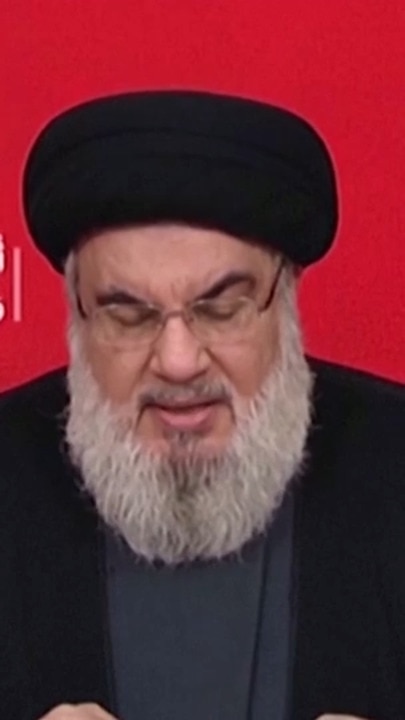
Alone at the top
“We say to Netanyahu, Galant … to the enemy’s government, army, and society, that the Lebanon front will not stop before the end of the aggression on Gaza,” Hezbollah’s Secretary-General Hassan Nasrallah said in a speech Friday morning.
“No matter the sacrifices, repercussions, possibilities, or horizon to which the region will head, the Resistance in Lebanon will not stop supporting the oppressed people of Gaza and the West Bank in that Holy Land.”
But the Hezbollah leader’s closest supporters are now dead, and he is struggling to maintain control over an organisation stripped of confidence in its command and control network.
Israel’s previously stated goal was to force Hezbollah fighters to withdraw north of Lebanon’s Litani River, from where attacks on northern Israel would be much more difficult.
But Prime Minister Benjamin Netanyahu appears to have expanded his war goals, repeating overnight that: “We have just started, and we will work to change the Middle East”.
“Nasrallah has been pushed into a corner in a way that could lead to an all-out war,” argues Israeli analyst Amos Harel.
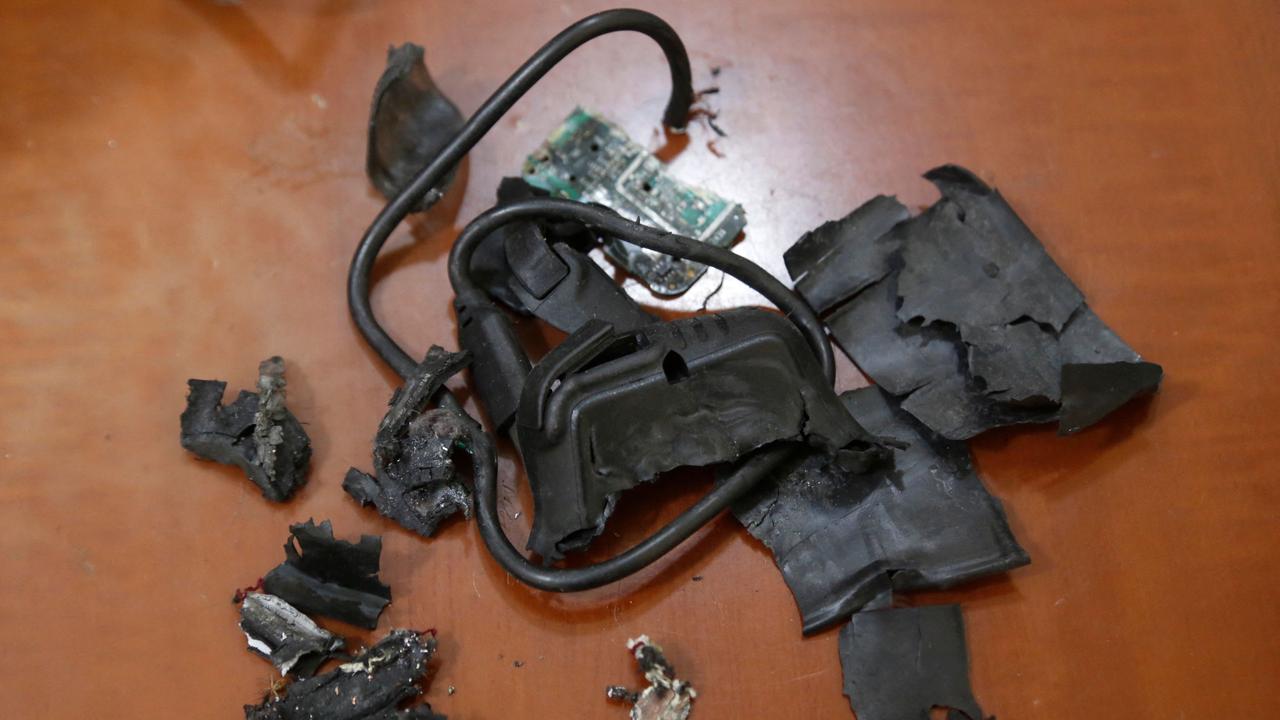
“Many of Israel’s leaders are not necessarily opposed to such a scenario after a frustrating year with no resolution in the north.”
Harel says Nasrallah, who took command of Hezbollah in 1992, is now “almost alone among veteran military Hezbollah commanders”.
“Hezbollah’s last top commanders Shukr, Aqil and three out of the four commanders of large operational units of the organisation were killed in Israeli strikes during the current war,” he explains.
“Of the senior group of Hezbollah commanders, only Ali Karaki, the head of Hezbollah’s southern front, and Talal Hamiyah, who is responsible for terror attacks outside Lebanon, are still alive.”
But Nasrallah is in no position to simply let this week’s attacks slide.
“The ‘response equation’ system of the Shi’ite leader is bankrupt. It’s probable that he will feel obligated to respond with intensity against targets in central Israel or in the Haifa area, not making do with firing only at the Galilee,” Harel writes.
“And yet, a red line that hasn’t been crossed yet is fire aimed at a mass killing of civilians. “Nasrallah knows that the significance of that would be an all-out war. If he chooses that option, he will knowingly bring about that result.”
Jamie Seidel is a freelance writer | @JamieSeidel




